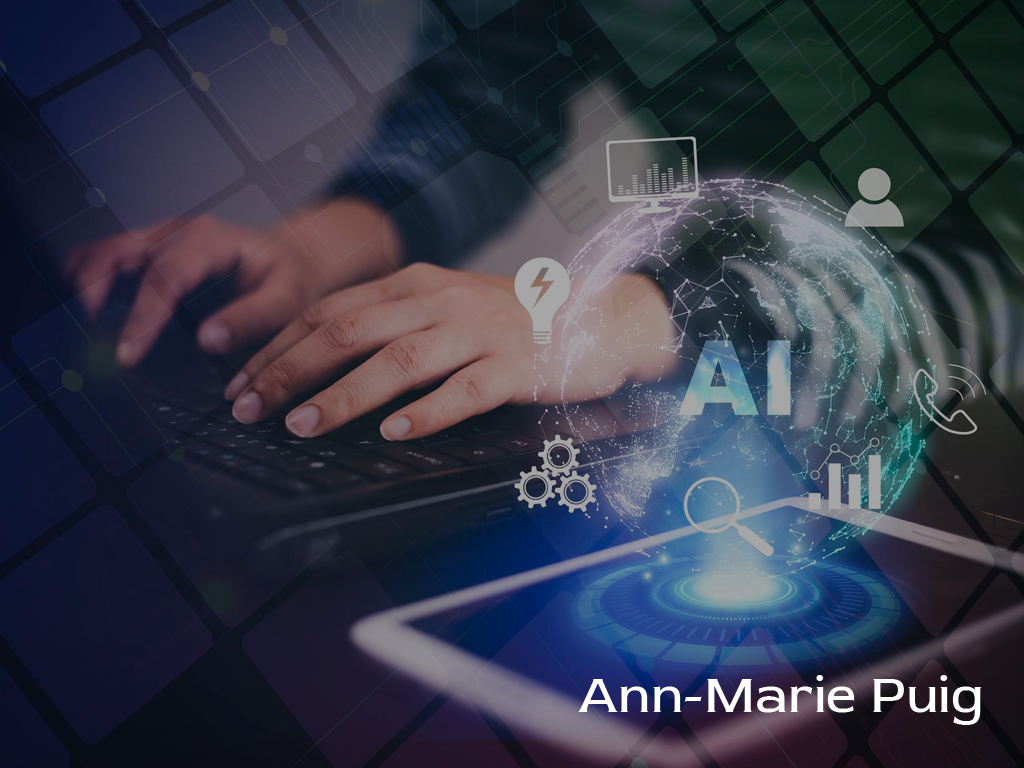Artificial Intelligence (AI) is changing the way businesses operate, offering incredible opportunities to cut costs, increase efficiency and create new ways to interact with customers. But AI can also be a double-edged sword if used irresponsibly. Ann Marie Puig, a global business consultant who has helped numerous companies achieve greater success, offers insights into the use of AI in business expansion.
AI has been a hot topic in the business world for some time now. Some believe that AI will be a major driver of business expansion in the years to come, while others are more skeptical.
Explains Puig, “AI can broadly be defined as the ability of computers to perform tasks that would normally require human intelligence, such as understanding natural language and recognizing patterns. businesses are already beginning to make use of AI in a number of ways, such as customer service, marketing, and even product development.”
For example, chatbots are increasingly being used to handle customer service inquiries, freeing up human customer service representatives to handle more complex issues. AI is also being used to create more targeted and personalized marketing content, and even to help develop new products.
Proponents of AI argue that it has the potential to transformative for businesses, helping them to become more efficient and effective. Skeptics worry about the potential impact of AI on jobs, with some fearing that it could lead to mass unemployment as machines begin to replace humans in a wide range of roles.
Overall, there is a lot of debate about the role of AI in business expansion. However, there is no doubt that AI is already beginning to play an important role in many businesses across a variety of industries.
There are a number of ways businesses are using artificial intelligence to expand their reach and customer base. The first is social media marketing. AI can be used to target potential customers on social media platforms like Facebook and Instagram. By analyzing data points like age, location, gender, and interests, businesses can create targeted ads that are more likely to result in conversions.
In addition, AI helps with predictive analytics. It can be used to analyze past data and make predictions about future trends. This information can be used by businesses to make strategic decisions about where to allocate resources or which products to develop next.
Chatbots are a type of AI that can be used to simulate human conversation. Businesses are using chatbots as a way to provide customer support or lead generation. Chatbots can also be used to answer FAQs on a company’s website.
Personalized recommendations are improved through AI. Adds Puig, “Many online businesses use AI to provide personalized recommendations to their customers based on their purchase history or browsing behavior. This helps businesses increase sales by showing customers items they’re more likely to be interested in.”
AI can help businesses expand by providing valuable insights that can be used to make better decisions. For example, AI can be used to analyze data sets to identify patterns and trends that may otherwise be missed. This information can then be used to inform strategic decisions about where to expand, what products or services to offer, and how to better serve customers.
In addition, AI can be used to automate repetitive tasks and processes. This can free up employees’ time so they can focus on more innovative and creative work that can help the business grow. Automation can also help improve efficiency and accuracy, which can lead to cost savings.
Overall, AI has the potential to greatly benefit businesses that are looking to expand. By providing insights, automating tasks, and improving efficiency, AI can help businesses reach new levels of growth.
As with any new technology, there are potential risks associated with using artificial intelligence (AI) in business. These risks can be divided into two main categories: technical risks and ethical risks.
Technical risks include the potential for errors or unforeseen consequences when deploying AI-powered systems. For example, if an AI system is not properly trained or calibrated, it may make inaccurate decisions that could lead to financial losses or other problems for the business.
Ethical risks, on the other hand, relate to the impact of AI on society as a whole. For instance, there is a risk that businesses will use AI to exploit or discriminate against employees, customers, or other groups of people.
Of course, these are just some of the potential risks associated with using AI in business. It’s important to remember that these risks must be balanced against the potential benefits of AI in order to make an informed decision about whether or not to deploy AI-powered systems.



